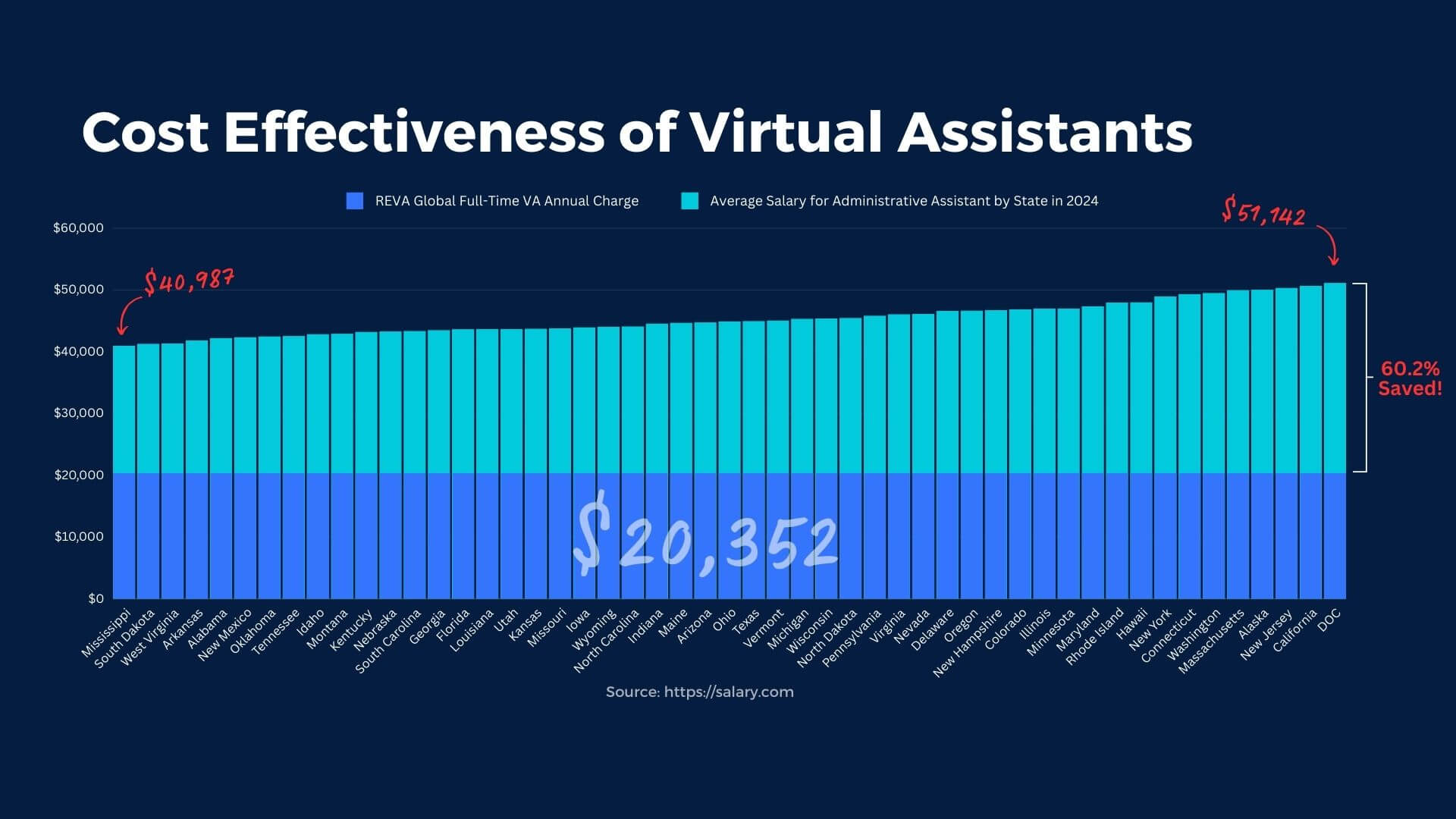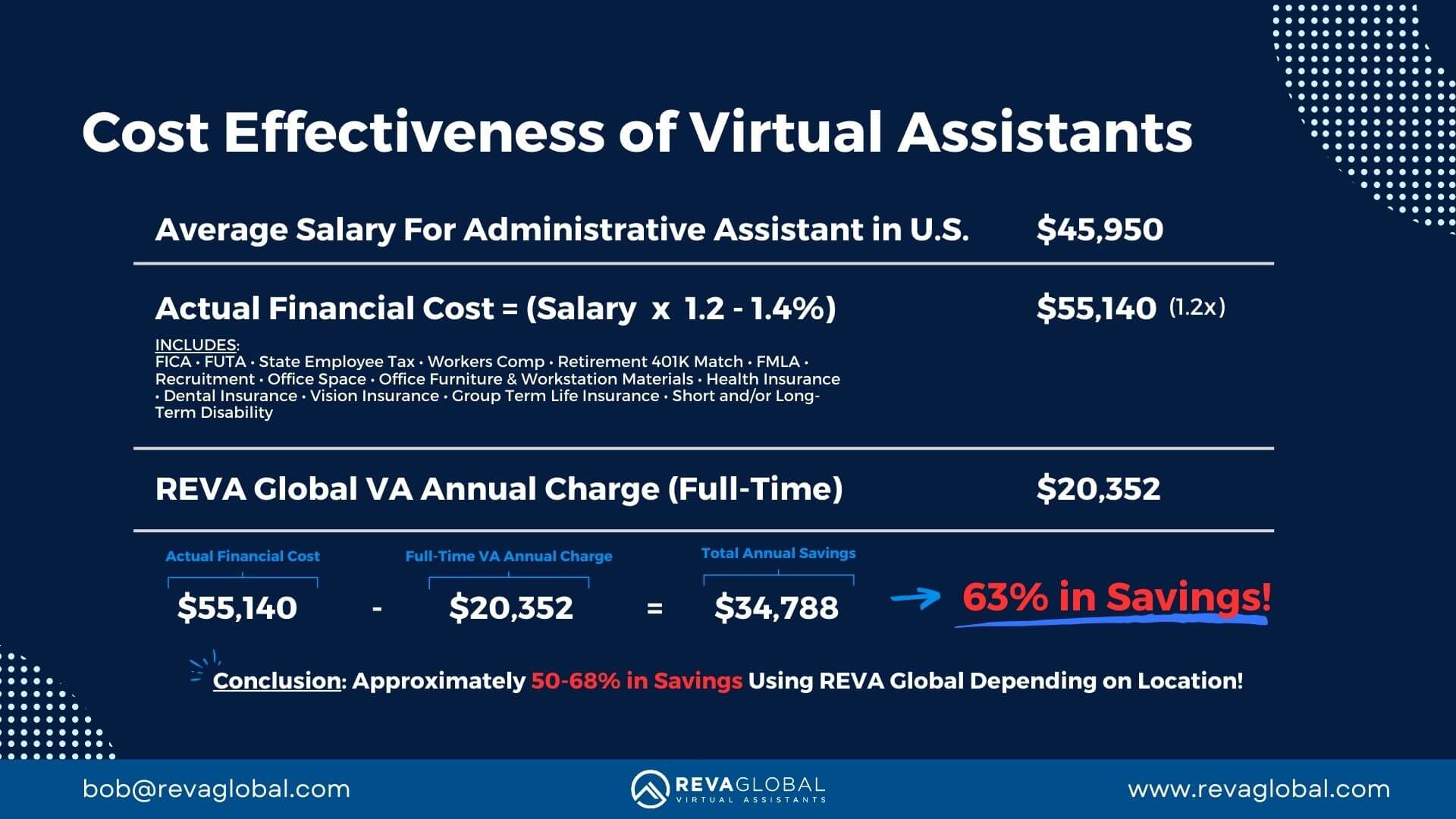Leveraging Virtual Assistants for Property Management Success
The business of property management faces several challenges in its daily operations. Handling tenant relations can be difficult due to diverse needs and conflicts. Staffing issues make it hard to find and retain good employees. Time constraints stretch managers thin across multiple tasks. Inefficient processes lead to delays and errors, impacting quality of service.
Additionally, balancing cost-management with profitability is a constant challenge, as controlling expenses while maintaining financial health is crucial. Addressing these issues effectively is essential for smooth operations and financial success.
Luckily in today’s tech-savvy world, virtual professionals from around the world have emerged as a powerful resource for enhancing operational efficiency and reducing costs for the property management industry. By integrating Virtual Assistants (VAs) across various departments, property management business owners can streamline operations, delegate tasks more effectively, and achieve significant cost savings.
Here’s a guide on how to effectively incorporate VAs, the specific tasks they can handle, and the benefits they offer.
Integrating Virtual Assistants Across Key Property Management Departments
Leasing and Tenant Relations
Virtual assistants can transform the leasing process by handling routine tenant interactions and application procedures. They can manage inquiries, schedule property viewings, and assist with lease documentation. This integration helps property managers maintain high levels of tenant satisfaction and ensures a smooth leasing process.
Integration Tips:
- Communication Tools: Utilize platforms like Slack or Microsoft Teams for smooth communication between VAs and property management staff.
- CRM Systems: Implement Customer Relationship Management (CRM) systems to keep track of tenant information and interactions efficiently.
Maintenance Coordination
VAs can streamline maintenance operations by logging repair requests, scheduling service calls, and following up on the status of repairs. This ensures that maintenance issues are handled promptly and reduces the administrative burden on property managers.
Integration Tips:
Accounting and Financial Management
In the topic of finance, VAs can handle tasks such as rent collection, invoice processing, and financial reporting. They can track payments, manage billing, and generate financial reports, which helps maintain accurate financial records and ensures timely financial operations.
Integration Tips:
- Accounting Software: Use QuickBooks or Xero to manage financial tasks effectively.
- Regular Reviews: Schedule periodic reviews to reconcile financial records and ensure accuracy.
Marketing and Outreach
VAs can take charge of marketing efforts, including managing social media accounts, creating content, and running email campaigns. They can also analyze marketing data to refine strategies and improve property visibility.
Integration Tips:
Administrative Support
Administrative tasks such as data entry, document management, and appointment scheduling can be efficiently handled by VAs. This frees up time for property managers to focus on more critical responsibilities.
Integration Tips:
- Task Management Software: Utilize tools like Asana or Trello to organize and track administrative tasks.
- Document Storage: Use cloud-based systems like Google Drive for secure document management.
This REVA Global Property Management Model outlines the roles and responsibilities of virtual assistants (VAs) across four key areas: Acquisitions, Leasing, Customer Service, and Accounting.
Specific Tasks REVA Global Virtual Assistants Can Manage
REVA Global Virtual Assistants are versatile and can handle a range of tasks that are crucial for property management businesses, including:
Tenant Onboarding
Preparing lease agreements, conducting background checks, and setting up tenant profiles.
Rent Collection
Monitoring rent payments, sending reminders, and processing late fees.
Maintenance Scheduling
Coordinating with vendors and scheduling both routine and emergency repairs.
Lease Renewals
Managing lease renewal processes, including preparing documents, notifying tenants, and negotiating terms to ensure timely renewals and continued occupancy.
Filling Vacancies
Advertising available units, screening prospective tenants, conducting showings, and managing the application process to ensure timely and efficient occupancy.
Customer Service
Providing exceptional support to tenants by addressing inquiries, resolving complaints, and ensuring a positive living experience through prompt and effective communication.
Lead Generation
Identifying and attracting potential tenants and property owners through targeted marketing strategies, online listings, cold calling, texting, and direct mail. Focusing on growing the property manager’s portfolio and increasing revenue and profits by securing more leads and closing more properties.
Financial Reporting
Generating reports on financial performance, including income, expenses, and budget variances.
Marketing Campaigns
Creating and scheduling marketing content, managing advertising campaigns, and analyzing campaign results.
Free Download!
Get your FREE download with over 100 tasks you can delegate to a real estate virtual assistant! Check out all the property management tasks you can pass on to a trained, dedicated virtual assistant.
Benefits and Cost-Effectiveness of Utilizing Remote Team Members
Cost Savings
Virtual assistants work on a contractual basis, which eliminates the need for full-time salaries, benefits, and office space. This can result in significant cost savings, particularly for tasks that don’t require a full-time presence.
Increased Efficiency
By delegating routine and administrative tasks to VAs, property managers can concentrate on high-value activities such as tenant relations and property improvements. This enhances overall operational efficiency and productivity.
Scalability
VAs offer flexible support that can be adjusted based on business needs, making it easier to scale operations up or down without the complexities associated with hiring full-time staff.
Access to Specialized Skills
VAs often have specialized skills in areas such as digital marketing, finance, or customer service. Leveraging these skills can improve the quality of work and fill gaps that might be present in-house.
Improved Work-Life Balance
Outsourcing tasks to VAs can help reduce stress and improve work-life balance for property managers. With routine tasks managed effectively, managers can focus on strategic decision-making and personal well-being.
This graph will let you visualize the cost-effectiveness of hiring full-time REVA Global VAs compared to the average salary of administrative assistants across various states in 2024. The annual charge for a REVA Global full-time VA is $20,352, which is significantly lower than the average salary for administrative assistants, which ranges from approximately $40,987 to $51,142 across the states. The substantial difference in costs highlights a potential saving of 60.2% by opting for virtual assistants over traditional administrative staff.
Integrating REVA Global virtual professionals into property management operations offers substantial benefits, including enhanced efficiency, cost savings, and access to specialized skills. By leveraging VAs, property management businesses can streamline their processes, improve service quality, and position themselves for long-term success!
Check Out The Full Webinar Replay Today!
Discover how Virtual Assistants (VAs) specialized in property management can transform your property management business by handling key workloads and administrative processes.





